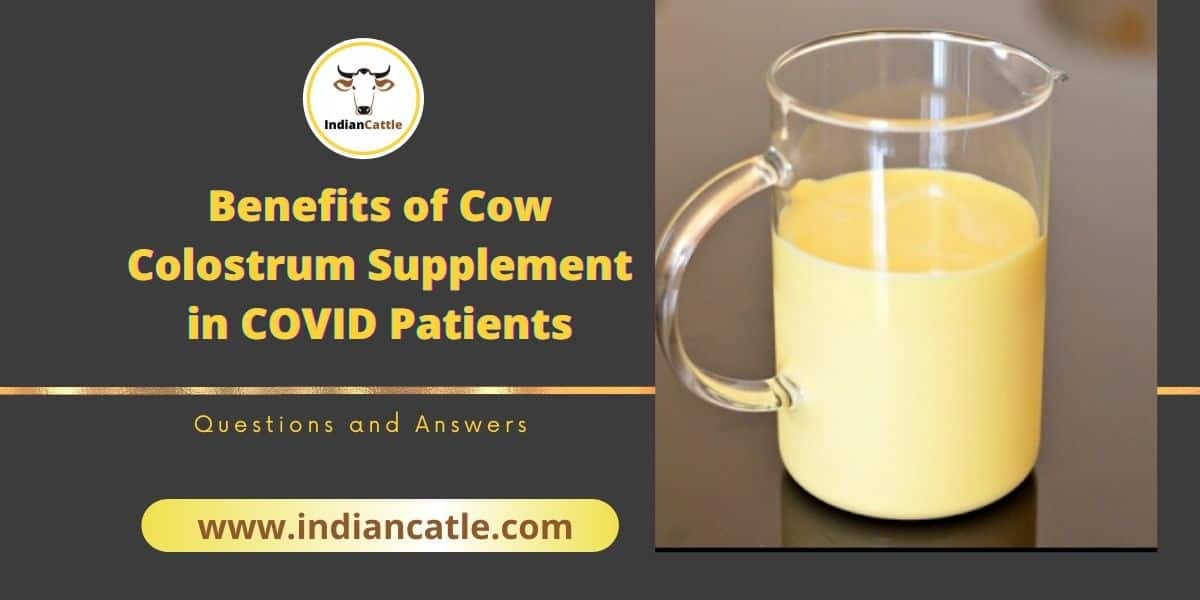
Benefits of Cow Colostrum Supplement in COVID Patients
Based on several questions on this blog What are the Benefits of Cow Colostrum Supplement for COVID Patients? asked by our readers, I am sharing additional information on the topic.
(1) Should colostrum be boiled?
No, colostrum should not be boiled as it will result in the destruction of antibodies and other good properties. Fresh colostrum can be obtained from the dairy and frozen. You can thaw 50-100 ml for use and re-freeze.
(2) How many days colostrum:
It should be collected from first, second- or third-time milking after calving is better. In severe cases insist on the first secretion because it contains the largest amounts of antibodies.
(3) Is colostrum from Desi cow is better than crossbred cows?
Research has shown that since Desi cows have been exposed to numerous infections passed on from generation to generation, their colostrum has better protective properties. This does not mean that crossbred cow or buffalo colostrum will not work.
(4) Should colostrum be taken as it is? How is the taste of colostrum?
Colostrum is slightly bitter in taste so you can add 50-100 ml colostrum in one cup cow milk.
(5) Is colostrum powder available on Amazon or other sources equally good?
Yes, but you must know the source of colostrum. Cows from other countries may not be exposed to infections that are prevalent in India then it will not be that effective. The colostrum drying should be either by lyophilization or micro-encapsulated as converting colostrum using a method similar to milk skim powder, would lead to destruction of 30-40% antibodies and other proteins.
It is a request to all the farmers not to boil and make any sweet as boiling leads to destruction of good proteins. Also remember, the newborn calf has the first right over the colostrum, so sell only excess colostrum.
If you haven’t read this blog yet, read it: Cow Colostrum Supplementation Reduces Respiratory Distress in Covid Patients
